The research goals in the Molecular Parasitology and Entomology Unit (MPEU) are to study the biology of the malaria parasite by characterizing essential vector-parasite and host-parasite interactions shaping malaria transmission. The long-term goal is to identify new targets that could be exploited for malaria interventions, including chemotherapy, vaccine development, and transgenic mosquitoes.
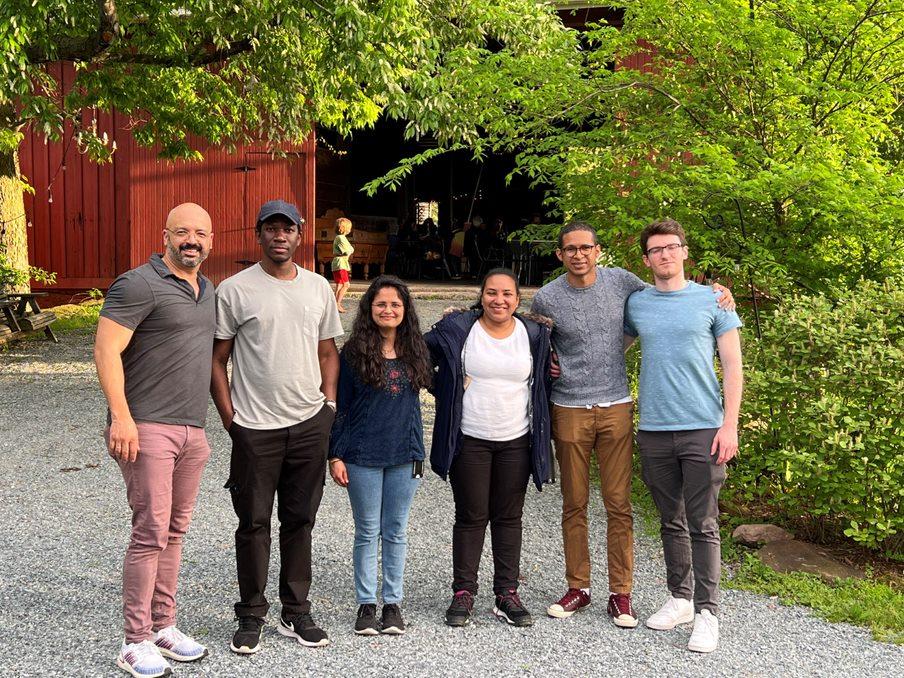
Molecular Parasitology and Entomology Unit, May 2022: (left to right) Joel Vega-Rodriguez, Principal Investigator; Medard Ernest Kaiza, Visiting Postdoctoral Fellow (former member); Zarna Rajeshkumar Pala, Visiting Postdoctoral Fellow (former member); Francis Monique de Souza Saraiva, Visiting Postdoctoral Fellow; Thiago Luiz Alves e Silva, Research Fellow; and Brendan Sweeney, Postbaccalaureate Trainee (former member).
Joel Vega-Rodriguez, Ph.D.
Earl Stadtman Investigator, NIH Distinguished Scholar
Chief, Molecular Parasitology and Entomology Unit
Education:
Ph.D., 2008, Rio Piedras Campus of the University of Puerto Rico, San Juan
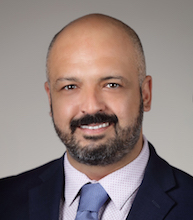
Thiago Luiz Alves e Silva, Ph.D.
Research Fellow
Education:
Ph.D., Microbiology and Immunology, Federal University of Rio de Janeiro
Languages Spoken: Portuguese
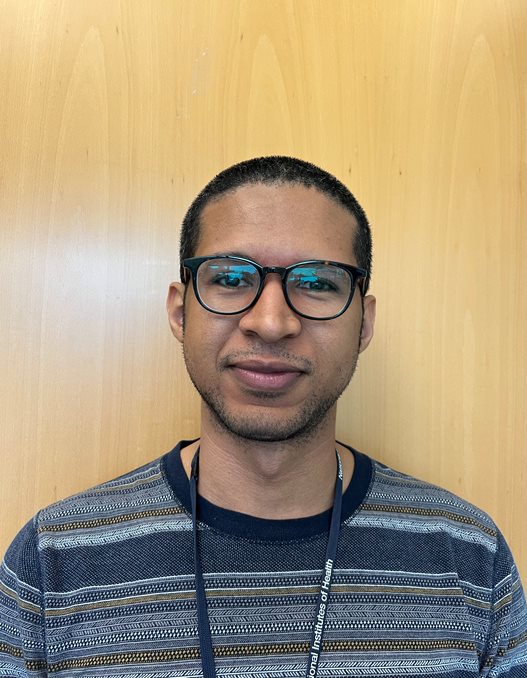
Emily Bencosme-Cuevas, Ph.D.
IRTA Research Fellow
Education:
Ph.D., Biomedical Sciences, 2023, Texas A&M University College of Veterinary Medicine and Biomedical Sciences, College Station, TX
Languages Spoken: Spanish

Rohit Chebbi, M.Sc.
Postbaccalaureate IRTA Fellow
Education:
M.Sc., 2024, BITS Pilani University, Goa, India
Languages Spoken: Kannada, Hindi
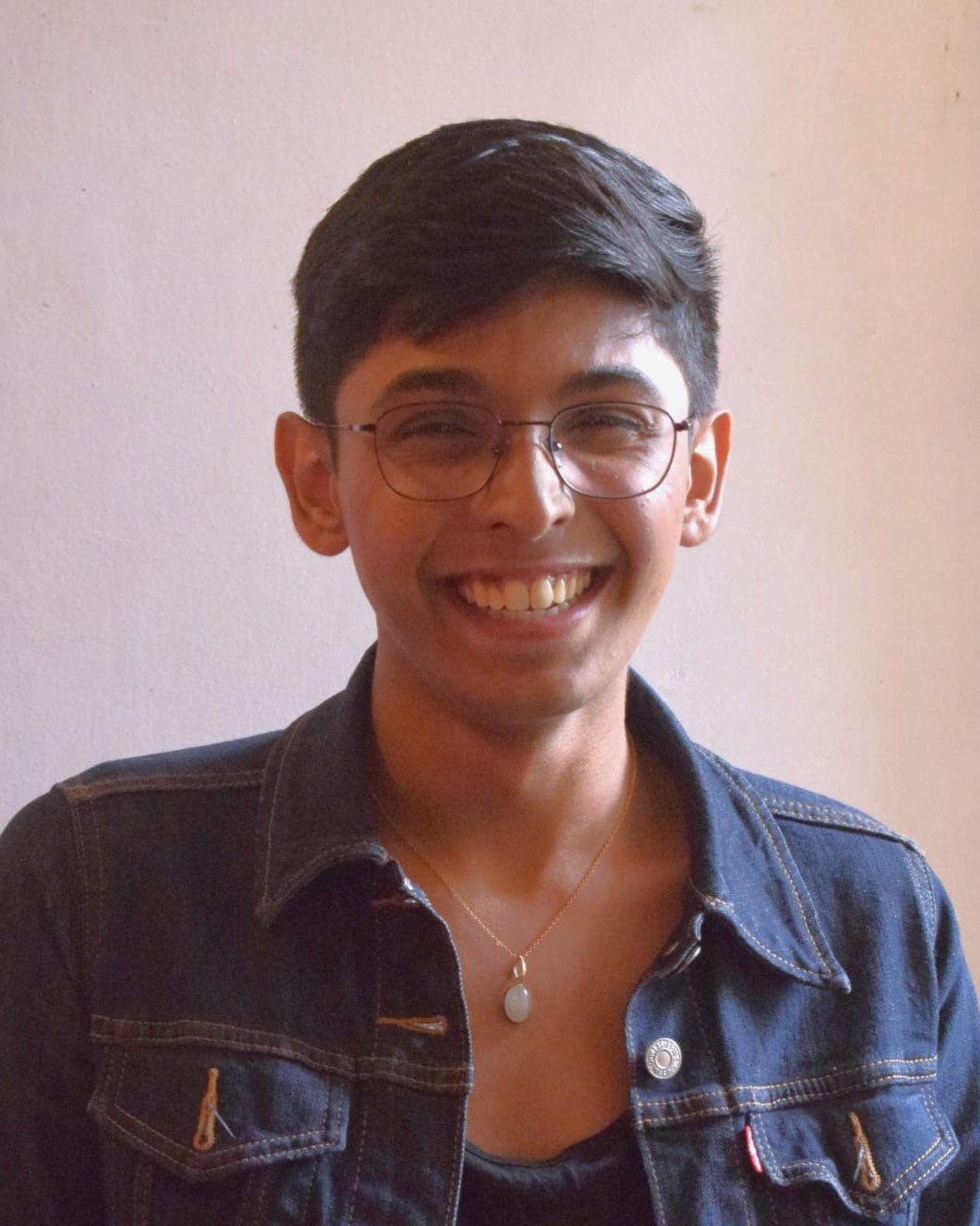
Francis Monique de Souza Saraiva, Ph.D.
Visiting Postdoctoral Fellow
Education:
Ph.D., Biosciences, emphasis in Biochemistry, 2019, Rio de Janeiro State University, Brazil
M.Sc., Biosciences, emphasis in Biochemistry, 2015, Rio de Janeiro State University, Brazil
B.Sc., Biology, 2012, Rio de Janeiro State University, Brazil
Languages Spoken: Portuguese
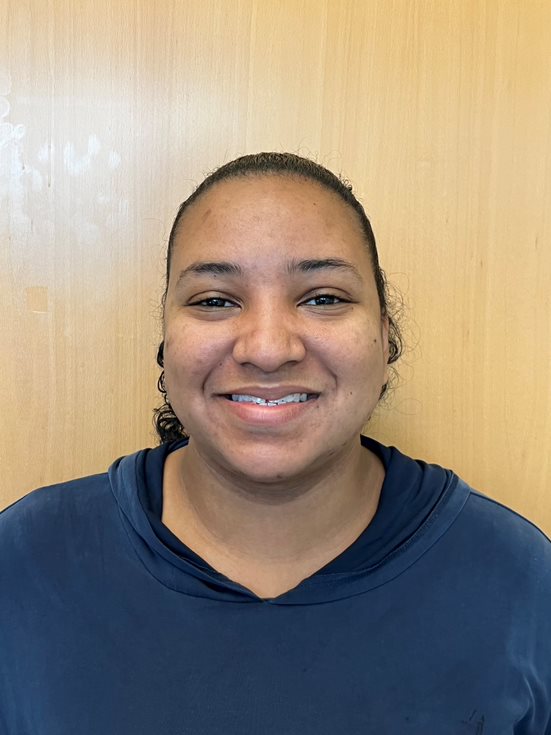
Renuka Elizabeth Joseph, Ph.D.
Visiting Fellow
Education:
Ph.D., 2023, Pennsylvania State University, State College, PA
Sc.M., 2016, Johns Hopkins Bloomberg School of Public Health, Baltimore, MD
B.Tech, 2013, Vellore Institute of Technology, Vellore, India
Languages Spoken: Malayalam
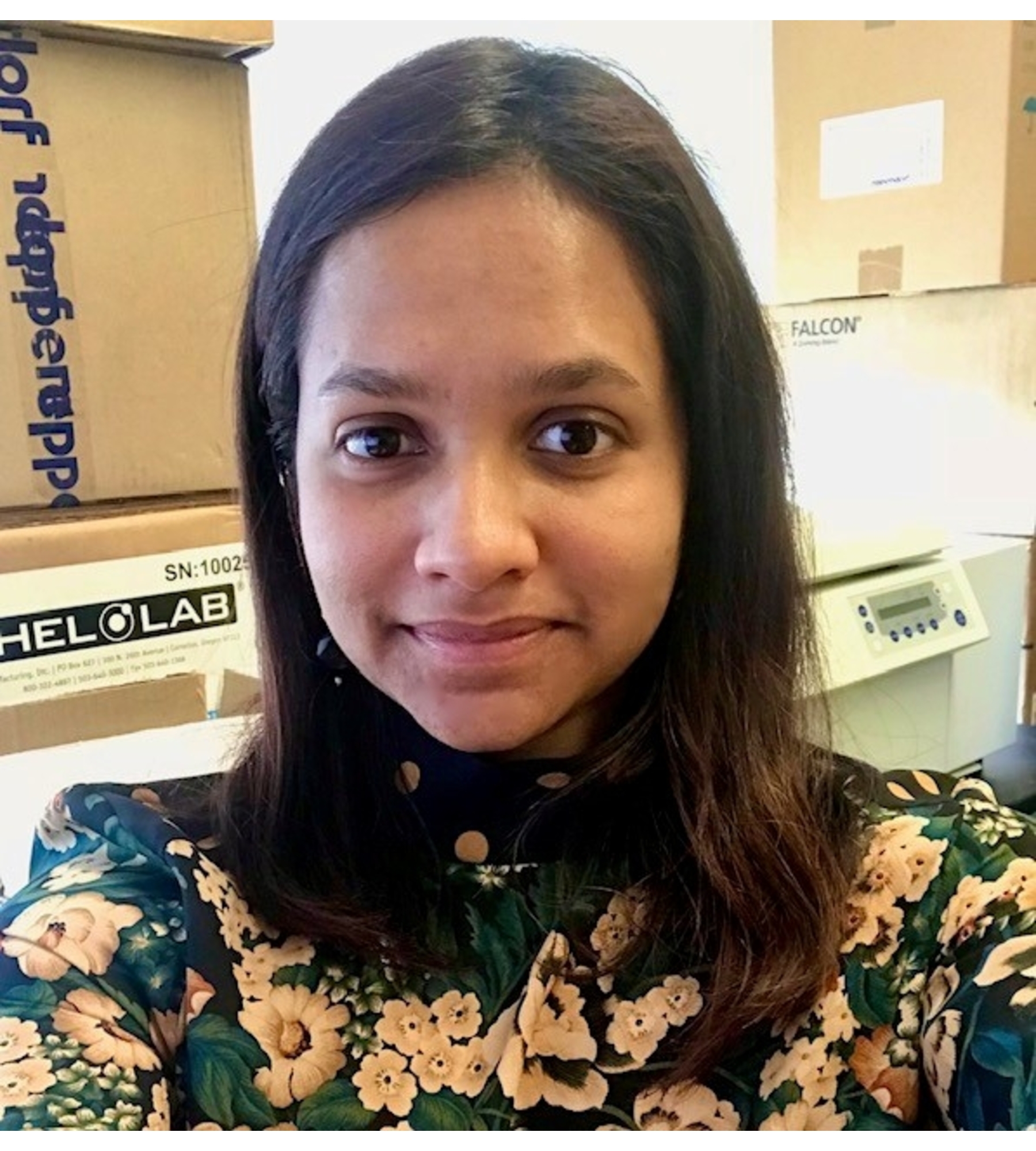
Heather Michelle Kudyba, Ph.D.
Postdoctoral fellow
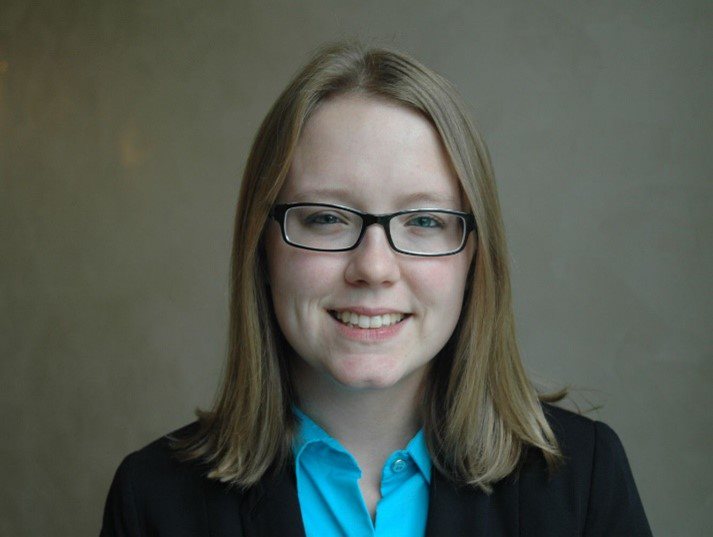
Former Research Group Members
Tales Pascini, Ph.D., Visiting Postdoctoral Fellow, currently at Walter Reed Army Institute of Research
Yeong Je Jeong, M.S., Postbaccalaureate, currently at George Washington Medical School
Janet Olivas, B.S., Postbaccalaureate, currently a Graduate Student at New York University
Brendan Sweeney, B.S., Postbaccalaureate, currently at George Washington Medical School
Malika Saxena, B.S., Postbaccalaureate
Kelly, Hanner, B.S., Postbaccalaureate Trainee
Medard Ernest Kaiza, Ph.D., Visiting Postdoctoral Fellow
Zarna Rajeshkumar Pala, Ph.D., Visiting Postdoctoral Fellow

